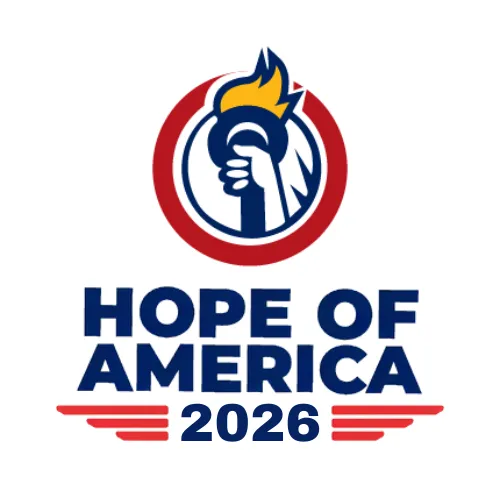Hope of America 2026
Celebrating the Spirit of Freedom
Through the Voices of Our Youth
Join us in honoring America’s past & empowering its future
through song, service, & the spirit of youth.
Choose a State
About
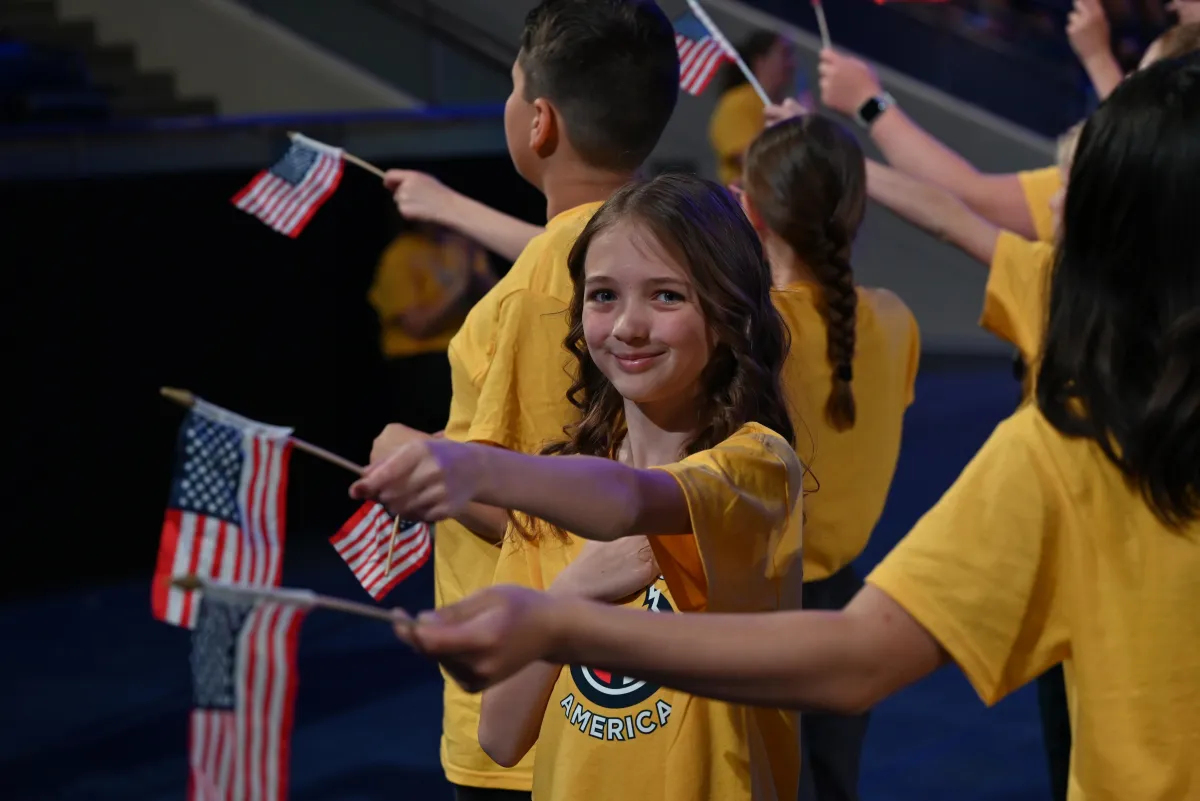
Hope of America is an initiative that brings together over 100 schools from across the United States to celebrate the core values that make America strong. Each year, fifth-grade students unite in red, white, and blue to form a giant American flag, symbolizing the unity and spirit of our nation. The program serves as a platform for teaching young people about the importance of patriotism, civic responsibility, and service.
Hope of America aims to foster a sense of pride and respect for our country, its history, and the ideals that define us. The organization strives to create a lasting impact by instilling values of gratitude, service, and community involvement in our next generation.

6K–8K Students Annually

Established in
1995

100+ Schools Participating

A Community Favorite
Celebrating Over 30 Years of Inspiring Patriotism
Among Thousands of Young Americans
7,000–9,000 Students Annually
Each year, between 7,000 and 9,000 students
from more than 100 public, private, charter and home schools across the country, participate in Hope of America events.
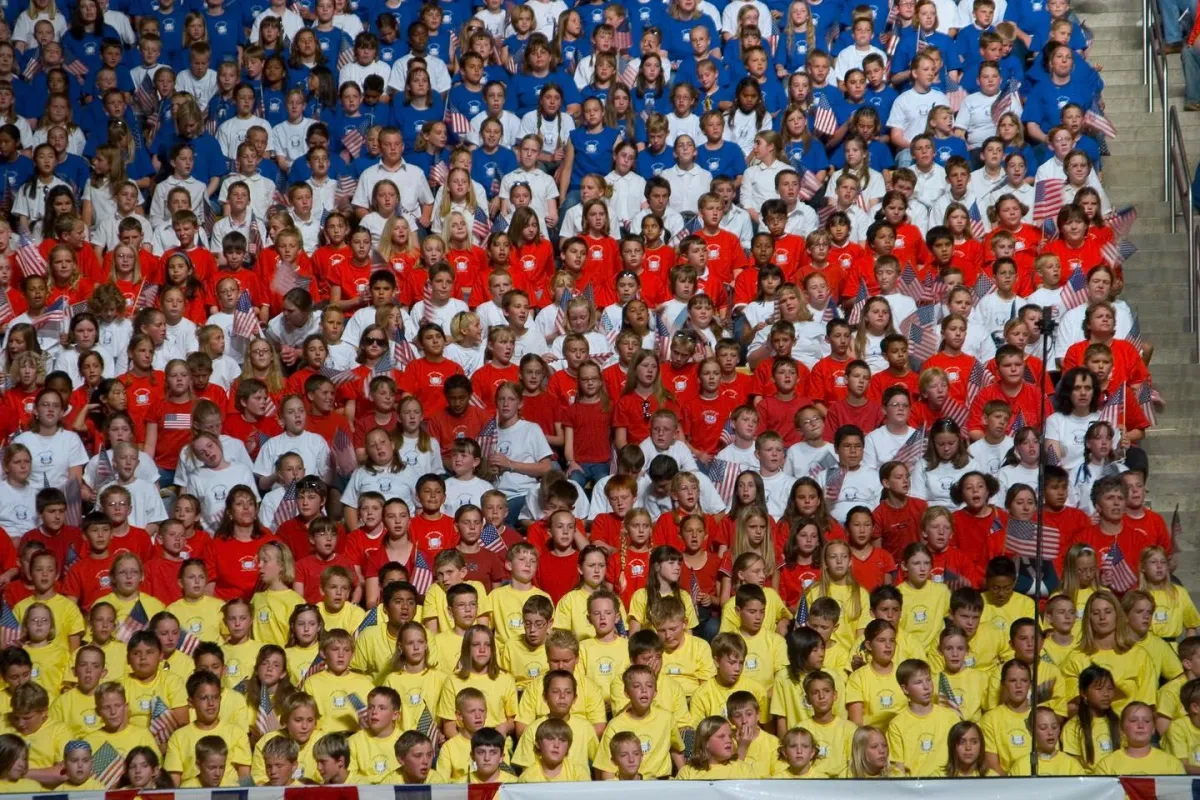
Established in 1995
The program was created by Kathy McDonald in 1995
with the support of America’s Freedom Festival in Provo,
marking over 30 years celebrating American freedom and unity.

100+ Schools Participating
More than 100 schools and groups come together annually
to participate in these exciting performances
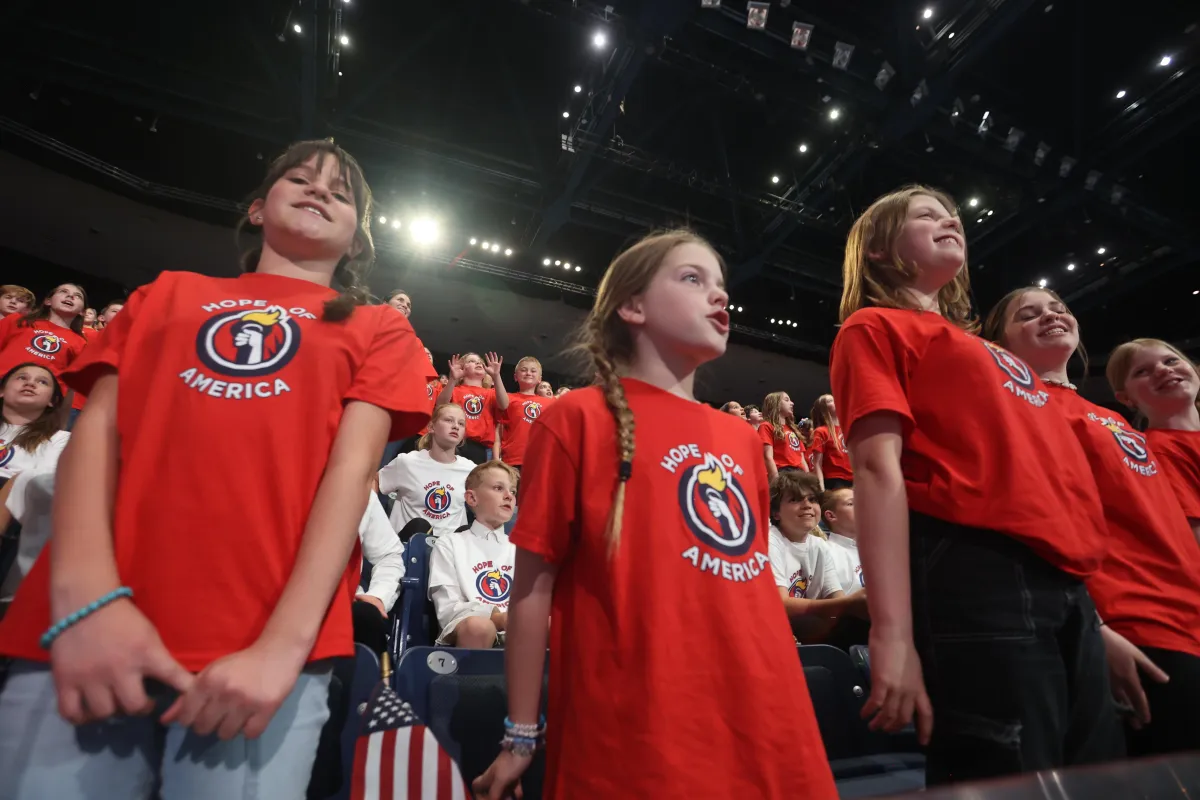
Community Favorite
These student showcases are attended by well over
35,000 parents, extended family, and military guests,
highlighting their popularity and community support.
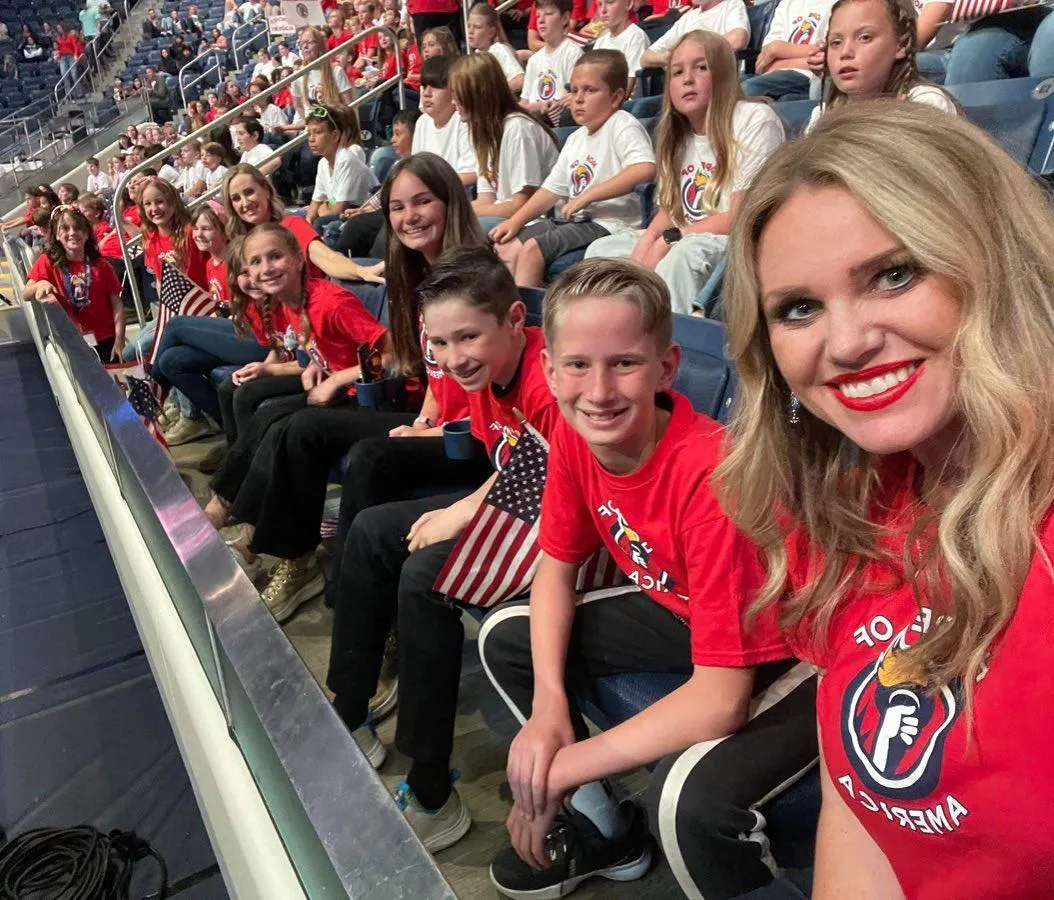
Hope of America : A Nationwide Celebration of Patriotism
The "Hope of America" program is a distinguished event that unites students from various regions to honor and celebrate our nation's core values through music and performance.
Utah
The heart of the original Hope of America event
Hosted at the BYU Marriott Center in Provo, the Salt Lake Tabernacle, and in schools across the state
Thousands of 5th grade students participate each year
Davis County
Strong and growing participation
Schools showcase patriotic spirit and unity
Community engagement through song and choreography
50 States
Celebrated as a model for youth patriotic education, aligning perfectly with fifth grade social studies curriculum
Promotes national pride and civic responsibility
Unites students from diverse backgrounds

Instilling pride, patriotism, and a deep respect
for the ideals
that unite us all.

Bringing schools, families, and communities together to
celebrate the spirit of unity.

Teaching our youth
the importance of freedom, and responsibility
through education.

Building strong, supportive families that nurture
the next generation
of leaders.

Encouraging community involvement and service through volunteerism, making a lasting impact.

Providing opportunities for students to participate through generous sponsorships
FAQs
Your Questions Answered, Ensuring Clarity and Confidence
What is the Hope of America program?
The Hope of America is a patriotic event that brings together thousands of fifth-grade students from over 100 schools to perform songs celebrating hope, patriotism, and service. The performances take place over three days at the Marriott Center.
Who can participate in the Hope of America event?
The program is designed for fifth-grade students, as the songs and themes correlate with the fifth-grade state core curriculum.
How much does it cost for a student to participate?
The participation fee has been $10 per student for many years. This registration is typically paid online by individual parents directly to the Hope of America organization.
What materials are provided to participating students?
Each participating student receives a Hope of America T-shirt. Additionally, schools are responsible for providing an 8” x 12” flag for each student and teacher.

How can schools register for the Hope of America event?
Schools interested in participating can register through the official Hope of America website. It's recommended to review the FAQs page and download the Teacher Timeline to get an overview and outline of expectations.
